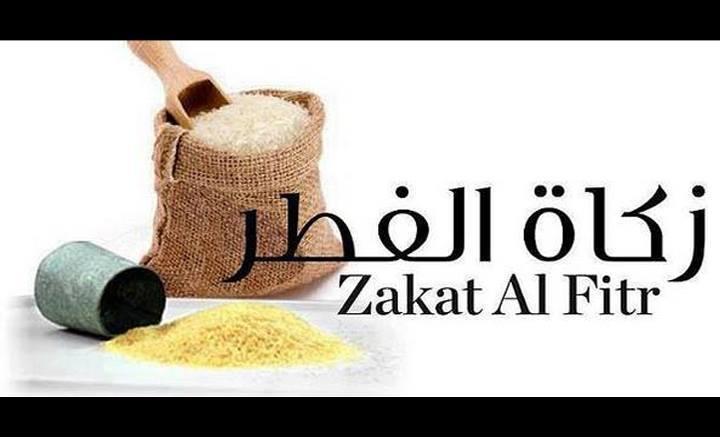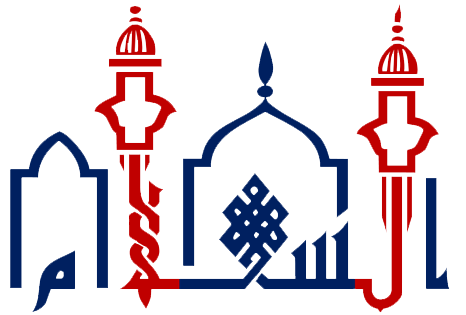
May 31, 2018
Zakat ul Fitr is $10/person in Canada in 2018.
Sadaqat al-fitr is obligatory upon every Muslim who is self-supporting, if he has one saa’ or more than he needs of food for himself and his family on the day and night of Eid.
The basis for that is the report narrated from Ibn ‘Umar (may Allaah be pleased with him) who said: “The Messenger of Allaah (peace and blessings of Allaah be upon him) enjoined zakaat al-fitr, a saa’ of dates, or a saa’ of barley, upon all the Muslims, slave and free, male and female, young and old, and he commanded that it be paid before the people went out to pray.” Agreed upon; this version was narrated by al-Bukhaari.
And Abu Sa’eed al-Khudri narrated: “We used to pay zakaat al-fitr when the Messenger of Allaah (peace and blessings of Allaah be upon him) was alive, a saa’ of food or a saa’ of dates or a saa’ of barley or a saa’ of raisins or a saa’ of dried yoghurt.” Agreed upon.
You can give it online. Please click on the following button:
Jul 8, 2013
Montreal’s Muslim Community is preparing for the month of Ramadan. “Ramadan is a spiritually uplifting and joyous occasion for all Muslims,” said Salam Elmenyawi, president of MCM. “It is a time for Muslims to look inward at their hearts, to see how we can better serve God and all of humanity. Restraining from food and drink during the fast helps to open one’s heart to those in need, to engender compassion and mercy towards others, as well as to increase gratitude and appreciation for all of one’s blessings.”
“Ramadan is also a good opportunity for Canadians to learn more about Islam and Muslims and to help build bridges of understanding and respect in the community.”
Fasting is one of the five pillars of Islam, with the other four being the declaration of faith, daily prayers, alms giving and the annual pilgrimage to Mecca. Those fasting arise before dawn to partake in a pre-dawn meal called suhoor and the fast is broken at sunset with a meal called iftar. In addition to increased acts of worship and charity, Muslims also offer supererogatory evening prayers at the mosque, each night of the month.
The end of Ramadan is marked by the celebration of the Islamic holiday of Eid-al-Fitr. This is one of the two major celebrations of the Islamic year, the other being Eid-al-Adha, which commemorates the annual pilgrimage to Mecca.
Jan 8, 2013
Competition is done. Contact us if you would like to register for the next competition in Summer 2013.

Sep 15, 2012
In the light of the recent movie that was spread, insulting the prophet (peace and blessings be upon him) and Islam, and after some Muslims added to the insult and proved their opponents’ accusations, I tend to ask myself a simple yet fundamental question:
-
What would he have done in a similar situation?
-
Did he face a similar situation, to begin with?
What we really need is to identify, assess, and control our emotions individually and in groups in order to harness this energy, even the anger, and manage it to achieve the intended goals.
We will distribute 5000 pocket guide about our beloved prophet (Peace be upon him).
Support our Prophet Daawa campaign please: Volunteer or Donate
Yes we are angry. Who is not? However, the response should be well planned and proactive.
-
Let us go out of this vicious reactive circle.
-
Let us stop blaming this ignorant movie maker and talk to our intelligent neighbours and friends.
-
Let us go out and tell our Canadian fellows about our prophet. Give the real image.
how can we help?
-
Raise Awareness
-
Talk to neighbours, friends, colleagues …
-
Support Daawa activities
-
Collaborate with fellow muslims
-
Share the beauty of our Islam
-
Share the biography of our prophet ..
Would you like to support Masjid As-Salam campaign to distribute 2000 packages about the prophet (Peace be upon him)? We are raising $5,000 to acquire and distribute books around Montreal.
You can donate online now
Share some info about him: http://www.rasoulallah.net/

Aug 8, 2012
By Dr. Muhammad Abu Laylah
The last third of Ramadan is the time for the release from Hell-fire, as the Prophet (peace and blessings be upon him) said in the Hadith reported by Salman Al-Farisi: “O people, a great and a blessed month is approaching you. In this month there is a night that is better than one thousand months. Allah has made fasting during its daytime obligatory and prayers at night commendable during this month. Whosoever will do a voluntary good deed during this month, it is as if he performed an obligatory good deed at another time and whosoever will perform an obligatory good deed, it is as if he performed seventy obligatory good deeds at another time. This is the month of patience and the reward of patience is Paradise. This is the month of kindness and charity. In this month the believer’s provision is enlarged. Anyone who will give food to a fasting person in this month, it will bring forgiveness for his sins, will save him from the hellfire and he shall have his reward without the person who is fed losing any of his reward….The first third of the month of Ramadan is the time for Rahmah (Mercy), the second third is for forgiveness, the third is for the release from Hellfire…”
The duties of the Muslim in this last third of Ramadan are to try his best to perfect his fasting, to avoid any shortcomings or sins that can harm his fasting, to offer more prayers, preferably in congregation, to advance in reading the Qur’an, making dhikr (remembrance of Allah), and helping others to be more committed to religion, to enter i`tikaf (seclusion) if it is possible for him/her, and to remember that the Prophet (peace and blessings be upon him) used to give extra attention to the last ten days of Ramadan. He could hardly sleep, and his family used also to stay in vigilance with him. The Prophet’s generosity in this month and particularly in the last ten days was compared to a fast wind.
We should not miss to remind you and all Muslims to try to settle disputes. It is the best occasion to forgive one another and forget about all enmities and grudges. We should come out of Ramadan in a better shape, understanding, and moral behavior. The Prophet (peace and blessings be upon him) made it clear that “If any Muslim comes out of Ramadan without gaining forgiveness and goodness, he/she is a real loser.”

Aug 8, 2012
Adapted from “The Night Prayers: Qiyam & Tarawih from works by Muhammad Nasir ud-Deen al-Albani (and other scholars)”
Compiled by Muhammad al-Jibali, © 1997 QSS
Laylat ul-Qadr is the most blessed night. A person who misses it has indeed missed a great amount of good. If a believing person is zealous to obey his Lord and increase the good deeds in his record, he should strive to encounter this night and to pass it in worship and obedience. If this is facilitated for him, all of his previous sins will be forgiven.
Praying Qiyaam
It is recommended to make a long Qiyaam prayer during the nights on which Laylat ul-Qadr could fall. This is indicated in many hadeeths, such as the following:
Abu Tharr (radhiallahu `anhu) relates:
“We fasted with Allah’s Messenger (sallallahu `alayhi wa sallam) in Ramadaan. He did not lead us (in qiyaam) at all until there were seven (nights of Ramadaan) left. Then he stood with us (that night – in prayer) until one third of the night had passed. He did not pray with us on the sixth. On the fifth night, he prayed with us until half of the night had passed. So we said, ‘Allah’s Messenger! Wouldn’t you pray with us the whole night?’ He replied:
‘Whoever stands in prayer with the imaam until he (the imaam) concludes the prayer, it is recorded for him that he prayed the whole night.’…” [Recorded by Ibn Abi Shaybah, Abu Dawud, at-Tirmithi (who authenticated it), an-Nasa’i, Ibn Majah, at-Tahawi (in Sharhu Ma`an il-Athar, Ibn Nasr, al-Faryabi, and al-Bayhaqi. Their isnad is authentic.]
[Point of benefit: Abu Dawud mentioned: “I heard Ahmad being asked, ‘Do you like for a man to pray with the people or by himself during Ramadan?’ He replied, ‘Pray with the people’ I also heard him say, ‘I would prefer for one to pray (qiyaam) with the imaam and to pray witr with him as well, for the Prophet (sallallahu `alayhi wa sallam) said: “When a man prays with the imaam until he concludes, it is recorded that he prayed the rest of that night.” [Masaa’il]]
Abu Hurayrah (radhiallahu `anhu) narrated that the Messenger (sallallahu `alayhi wa sallam) said:
“Whoever stands (in qiyaam) in Laylat ul-Qadr [and it is facilitated for him] out of faith and expectation (of Allah’s reward), will have all of his previous sins forgiven.” [Al-Bukhari and Muslim; the addition “and it is facilitated for him” is recorded by Ahmad from the report of `Ubaadah Bin as-Samit; it means that he is permitted to be among the sincere worshippers during that blessed night.]
Making Supplications
It is also recommended to make extensive supplication on this night. `A’ishah (radhiallahu `anha) reported that she asked Allah’s Messenger (sallallahu `alayhi wa sallam), “O Messenger of Allah! If I knew which night is Laylat ul-Qadr, what should I say during it?” And he instructed her to say:
“Allahumma innaka `afuwwun tuh.ibbul `afwa fa`fu `annee – O Allah! You are forgiving, and you love forgiveness. So forgive me.” [Recorded by Ahmad, Ibn Majah, and at-Tirmithi. Verified to be authentic by Al-Albani]
Abandoning Worldly Pleasures for the Sake of Worship
It is further recommended to spend more time in worship during the nights on which Laylat ul-Qadr is likely to be. This calls for abandoning many worldly pleasures in order to secure the time and thoughts solely for worshipping Allah. `A’ishah (radhiallahu `anha) reported:
“When the (last) ten started, the Prophet (sallallahu `alayhi wa sallam) would tighten his izaar (i.e. he stayed away from his wives in order to have more time for worship), spend the whole night awake (in prayer), and wake up his family.” [Al-Bukhari and Muslim]
And she said:
“Allah’s Messenger (sallallahu `alayhi wa sallam) used to exert more (in worship) on the last ten than on other nights.” [Muslim]




